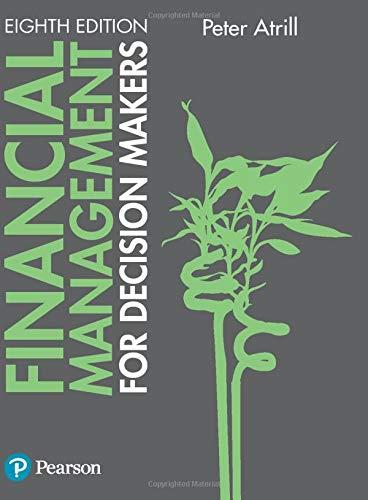Time to reach a financial goal You have $65,148.17 in a brokerage account, and you plan to deposit an additional $4,000 at the end of every future year until your account totals $290,000. You expect to earn 10% annually on the account. How many years will it take to reach your goal? Round your answer to two decimal places at the end of the calculations. years Effective rate of interest Find the interest rates earned on each of the following. Round each answer to two decimal places. a. You borrow $700 and promise to pay back $756 at the end of 1 year b. You lend $700 and the borrower promises to pay you $756 at the end of 1 year. c. You borrow $82,000 and promise to pay back $392,407 at the end of 9 years. d. You borrow $9,000 and promise to make payments of $2,684.80 at the end of each year for 5 years. Shalit Corporation's 2011 sales were $10 million. Its 2006 sales were $5 million. a. At what rate have sales been growing? Round your answer to two decimal places. b. Suppose someone made this statement: "Sales doubled in 5 years. This represents a gro of 100% in 5 years, so, dividing 100% by 5, we find the growth rate to be 20% per year. that statement correct? -Select- Time for a lump sum to double If you deposit money today in an account that pays 14.5% annual interest, how long will it take to double your money? Round your answer to two decimal places. years Effective versus nominal interest rates Bank A pays 8% interest compounded annually on deposits, while Bank B pays 7% compounded daily. a. Based on the EAR (or EFF%), which bank should you use? I. You would choose Bank A because its EAR is higher. II. You would choose Bank B because its EAR is higher. III. You would choose Bank A because its nominal interest rate is higher. IV. You would choose Bank B because its nominal interest rate is higher. V. You are indifferent between the banks and your decision will be based upon which one offers you a gift for opening an account. -Select- b. Could your choice of banks be influenced by the fact that you might want to withdraw your funds during the year as opposed to at the end of the year? Assume that your funds must be left on deposit during an entire compounding period in order to receive any interest. 1. If funds must be left on deposit until the end of the compounding period (1 year for Bank A and 1 day for Bank B), and you think there is a high probability that you will make a withdrawal during the year, then Bank A might be preferable. II. If funds must be left on deposit until the end of the compounding period (1 year for Bank A and 1 day for Bank B), and you have no intentions of making a withdrawal during the year, then Bank B might be preferable. must be left on deposit until the end of the compounding period (1 day for Bank A and 1 year for Bank B), and you think there is a high probability that you will make a withdrawal during the year, then Bank B might be preferable. IV. If funds must be left on deposit until the end of the compounding period (1 year for Bank A and 1 day for Bank B), and you think there is a high probability that you will make a withdrawal during the year, then Bank B might be preferable. V. If funds must be left on deposit until the end of the compounding period (1 day for ear for Bank B), and you think there is a high probability that you will make a withdrawal during the year, then Bank A might be preferable











